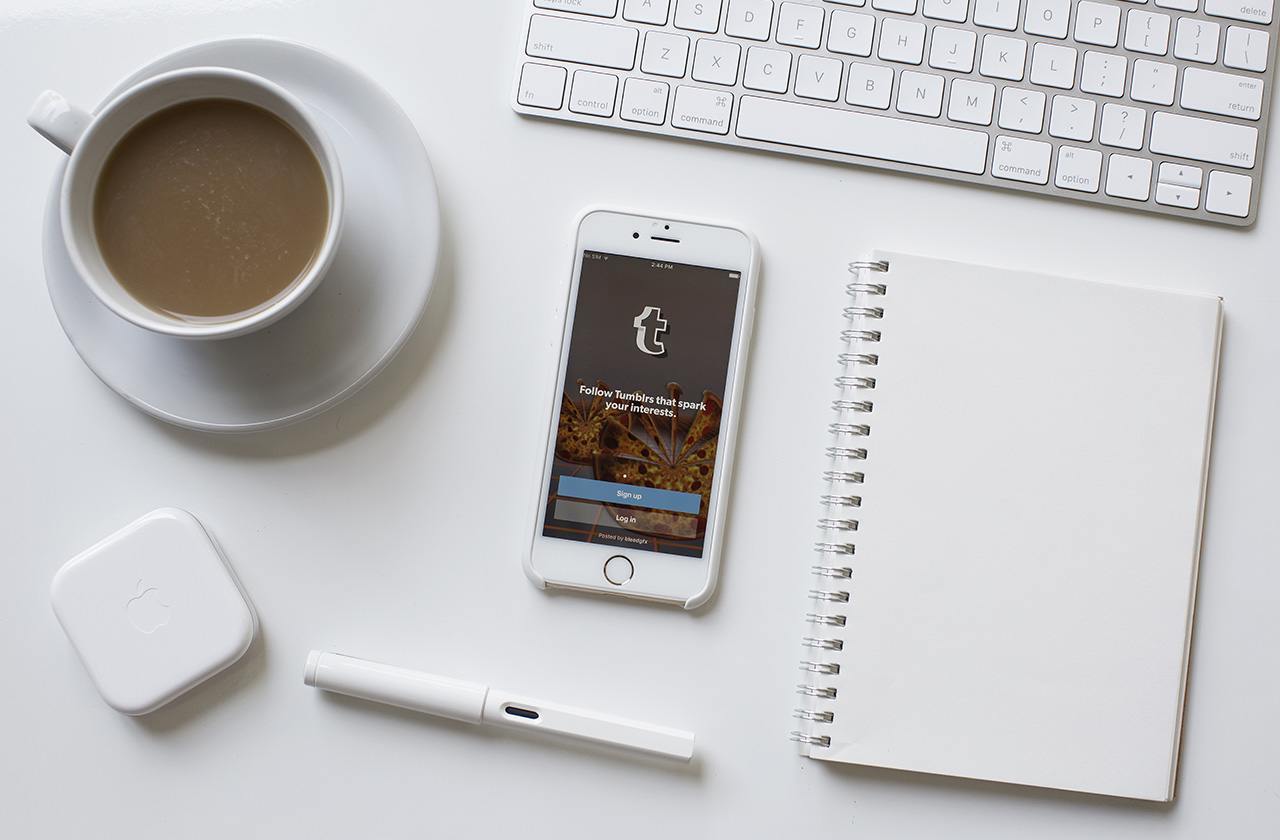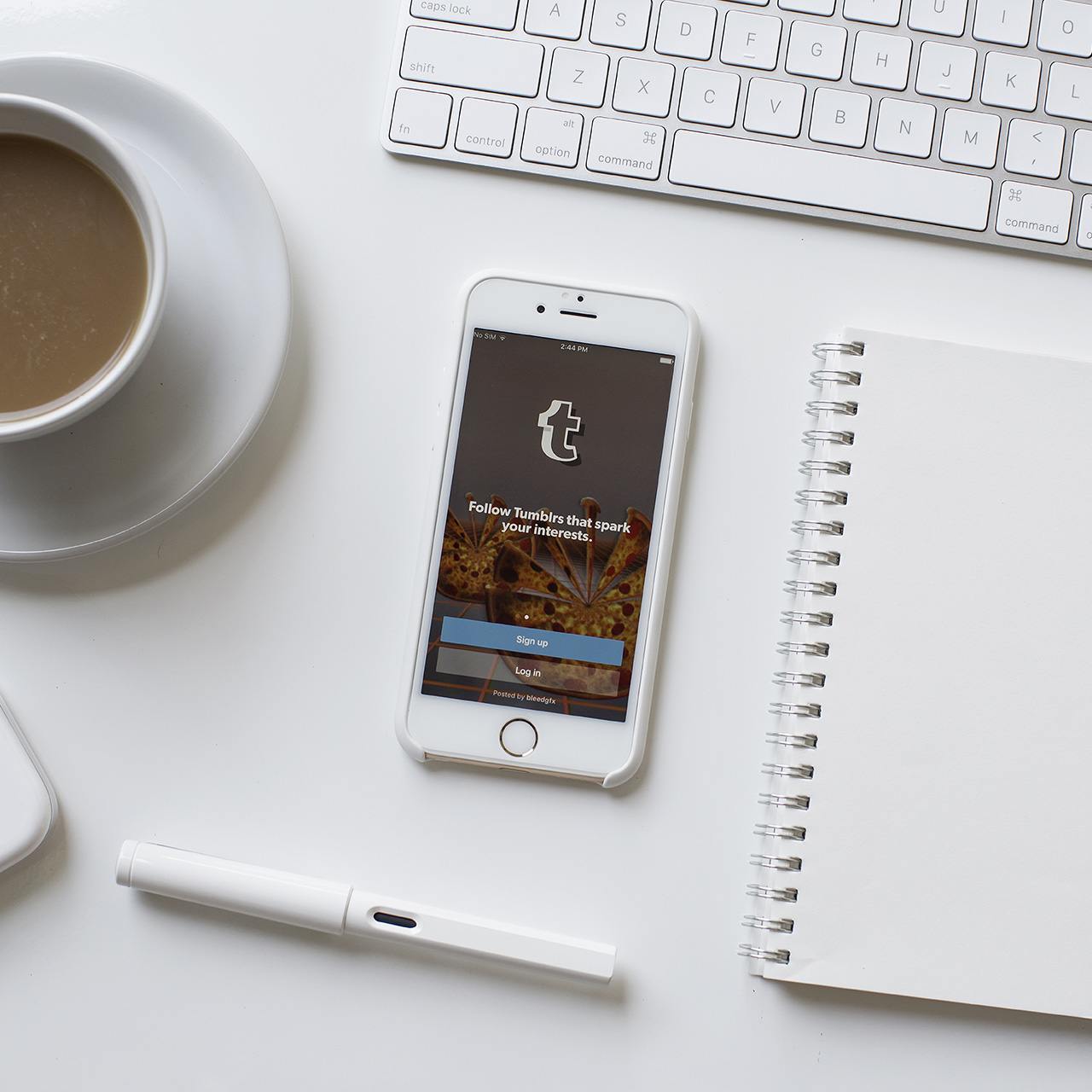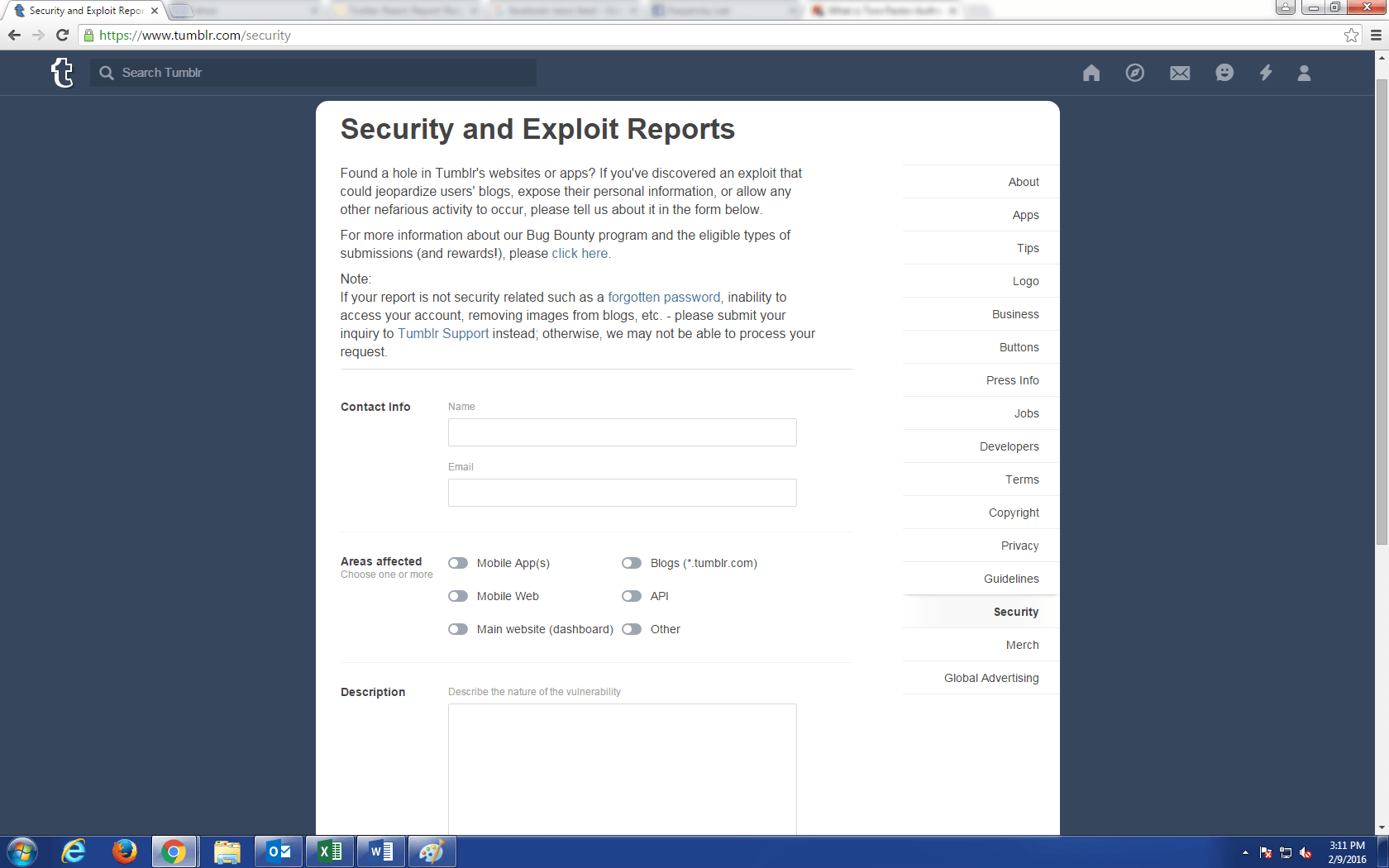Even if you don’t use it, it’s likely that you’ve heard of the popular microblogging site Tumblr. With its 275 million blogs, Tumblr has become a very popular social network, particularly with younger Internet users. Just as with every social media site, there are a variety of security issues to be aware of.
Back in 2011, a Tumblr security issue led to 748 lines of sensitive information being exposed to the public, and way back in its early days users figured out they could access administrator privileges for any account simply by adding “/admin” to a URL.
Tumblr has come a long way since then, and is now a much safer place. However, due to the constant evolution of new threats, Tumblr, along with any social network you can think of, is not 100% safe. Here are some tips on how to keep your account as safe and secure as possible.
Passwords
We’ve said this over, and over, and over again, but we’ll say it one more time because passwords never stop being important. When it comes to absolutely anything that requires a password, never re-use a password and be sure to change it regularly. Along with that, do not use a simple, easy-to-guess password. And if you’re unsure about whether your password is strong enough, be sure to use Kaspersky’s Secure Password Check.
Thinking of creating a strong password? Find out how long it would take to crack: https://t.co/9ILaxq503k https://t.co/P9Pm0SGc4n #IT
— Kaspersky (@kaspersky) January 14, 2016
Privacy
Unfortunately for those obsessed with privacy, Tumblr does not allow you to make your main blog private. But Tumblr offers you to make a secondary blog, which you are allowed to hide from unwanted eyes. To do this, go to the settings page on your main account and select “create another blog.” From here, it will ask you what you want to call your blog and if you want to password protect it, which you should. Password protecting your blog will make it so that people can only see your secondary blog if they know the password for it that you created.
If you opt to stay public, as many people do, just remember that everyone in the world is capable of seeing everything you post, so be very careful when posting potentially sensitive information to your blog. That includes your grandparents photos, for example.
Oh snap; is your #Snapchat secure? https://t.co/tTgfamSysz #privacy #securitybut pic.twitter.com/WeYfaNXLk8
— Kaspersky (@kaspersky) January 29, 2016
Security
Security online is something on everyone’s mind, but luckily Tumblr seems to care a lot about it. Tumblr has a security page in place where a user can report any activity that “could jeopardize users’ blogs, expose their personal information, or allow any other nefarious activity to occur.” The page allows you to give specific detail about what the exact issue is so that Tumblr can take care of it properly.
Tumblr also has a few settings that allow your account to stay more secure. In your settings page, you can activate “Secure Sockets Layer,” which creates an encrypted link between a browser and a web server. We’re not entirely sure why Tumblr has not made this a default setting – it does not affect the way the microblogging site looks or feels in any way – but we appreciate that it is an option, and we recommend that all Tumblr users turn it on. And Tumblr does too.
Is your #Instagram account secure? https://t.co/sBiZHQVQfc #tips to keep it that way #socme #SMM pic.twitter.com/ZUt0A8kyBW
— Kaspersky (@kaspersky) January 13, 2016
Tumblr also offers Two-Factor Authentication. When it’s turned on via your account settings, it makes it so that in addition to entering your password when you log in, a unique, single-use code is sent to your phone that you also must enter in order to log in. This makes it significantly harder for someone other than you to access your account.
One drawback is that if you happen to not have access to your phone at a particular moment, then you won’t be able to log into your Tumblr account. But, if you’re someone like me who makes sure their phone is always charged and with them, then it’s highly recommended that you turn this feature on, for the sake of your account’s security.
Follow these tips to ensure your Tumblr account stays as safe and secure as possible. If you want to know how to make your accounts in other social networks more secure, we’ve got some good reading for you about Facebook, Instagram, Google+, Snapchat and even VK.com privacy and security. Any tips we missed? Let us know in the comments section below.
 tips
tips


